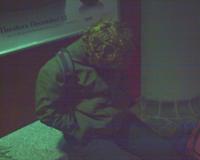Study: Depression, placebo effects and therapy


That's because treating it is time-consuming and labor-intensive.
A few years ago it was thought that this complexity might be eradicated by drug therapy. Pop some Ritalin for the ADHD, pop some Prozac for depression, and the costs are manageable.
It doesn't work that way, and the latest University of Pennsylvania study proving the case might thus be called an inconvenient truth.
The authors went over 30 years of research and found that, for mild or moderate depression, antidepressant medicines are no better than a placebo. Only severe depression really responds to drug therapy.
Here's the money quote from lead researcher Jay Fournier:
"What makes our findings surprising is the high level of depression symptom severity that appears to be required for clinically meaningful drug/placebo differences to emerge, particularly given the evidence that the majority of patients receiving Anti Depressant Medication in clinical practice present with scores [measures of depression] below these levels."
The short form is it's back to the couch. It's all in your head.
One important point I would make is that the placebo effect can be powerful. Even if people who present with moderate depression get no more relief from a real pill than from a sugar pill, they are getting relief, and this relief can allow therapy time to do its work.
Overall, though, the Penn study is going to be bad news for many sufferers. Half of those with even severe depression, the kind that would respond to drugs, don't get any treatment. Minorities and the poor suffer most. Studies showing that a pill won't help won't bring these people relief.
Where is the hope? Here it is.
Just as we're finding that drugs may be less effective than therapy in treating mental illness, we're also finding that some forms of therapy are better than others.
Cognitive behavior therapy (CBT), in which a therapist teaches better approaches to bedeviling problems, rather than sitting and waiting for the patient to say what's wrong, has been getting some good results in many problem areas.
CBT or its more intense cousin, Dialectical Behavior Therapy (DBT), which adds Zen teachings and Greek philosophers to deal with "stinkin thinkin," are both proving effective where other forms of therapy fail.
The bottom line here is that relief is possible. If you don't know it's a sugar pill, if the therapist is using a technique that is proven to work, you can get better.
But it's going to cost more than Prozac would.